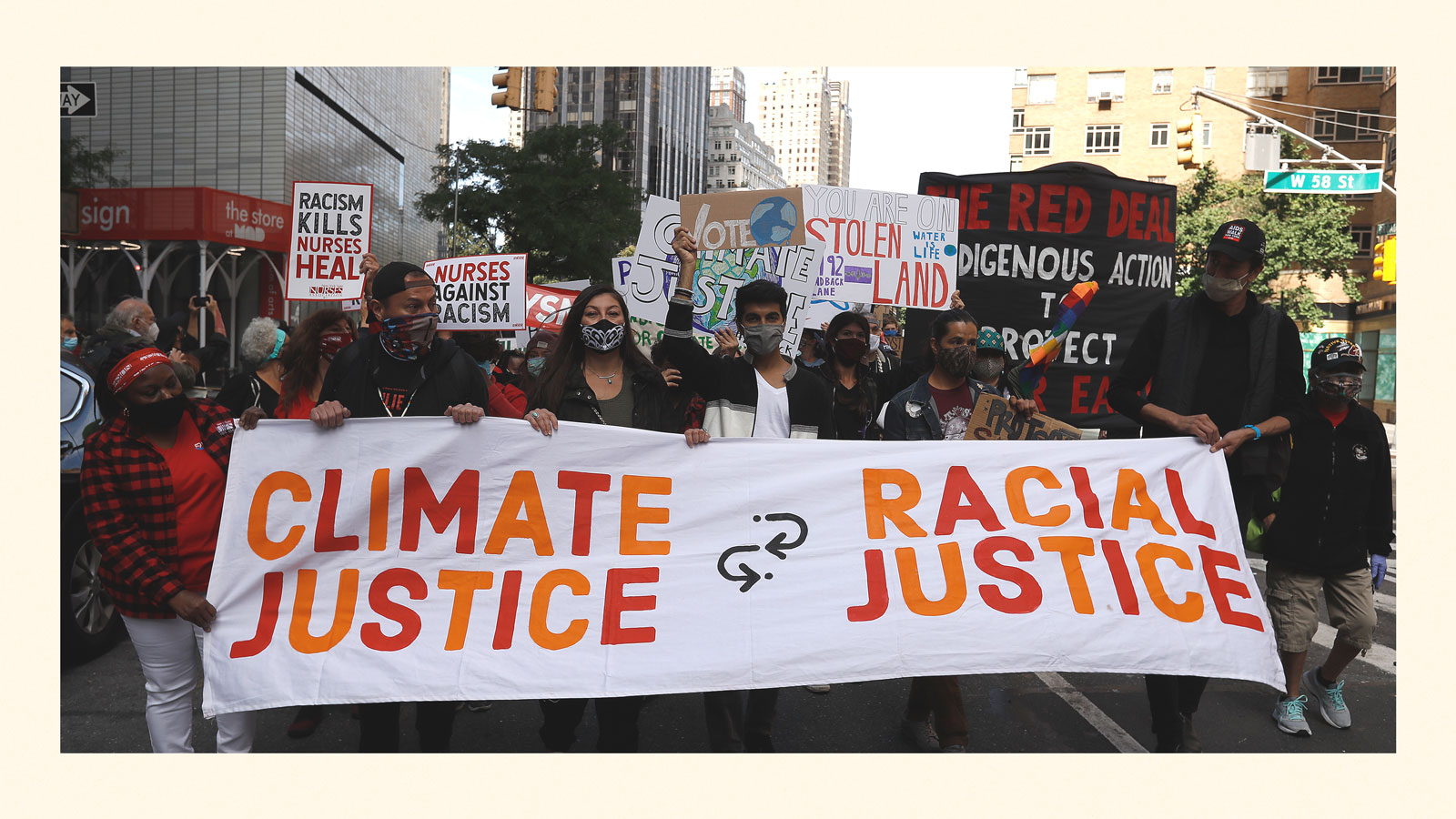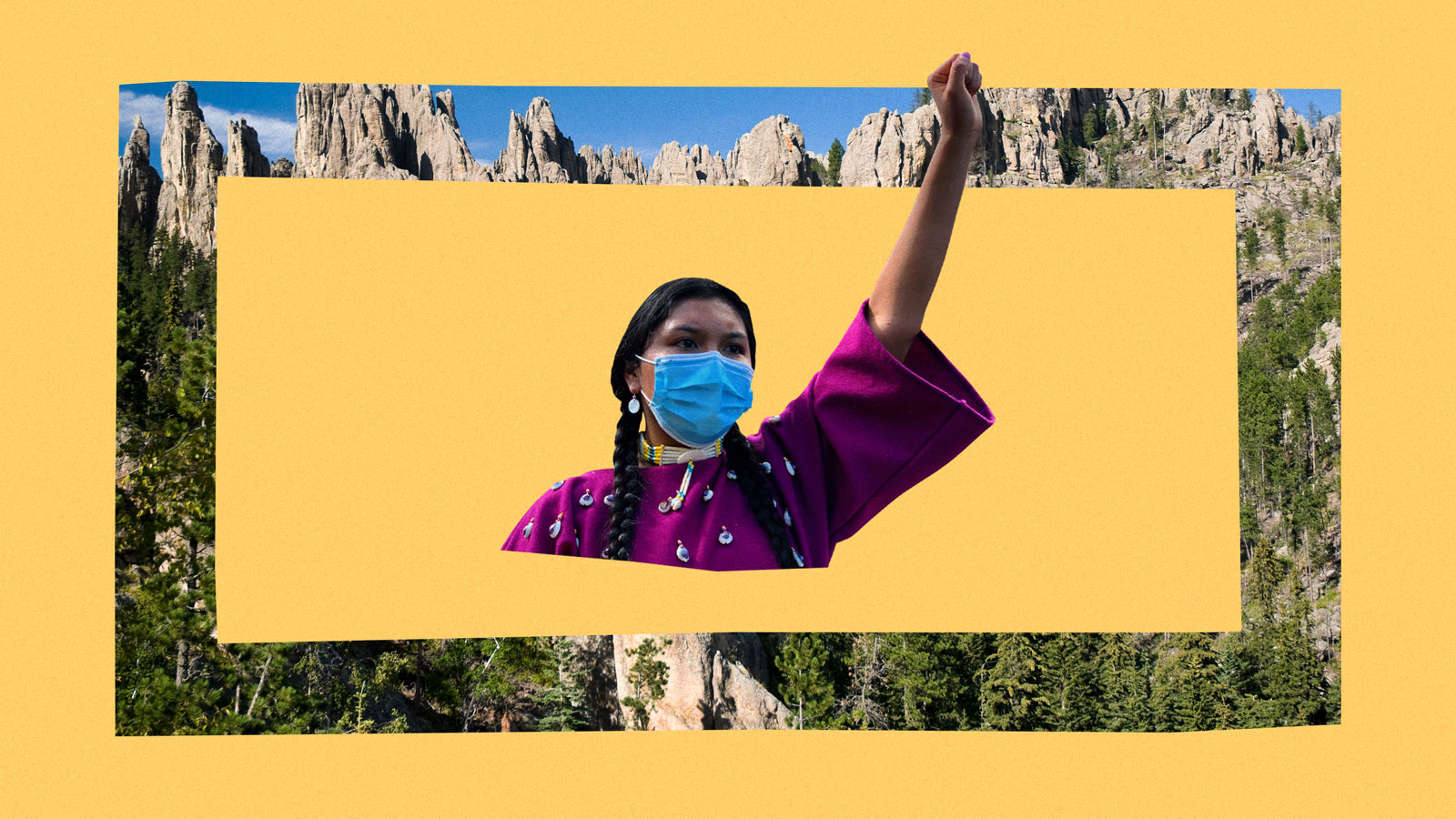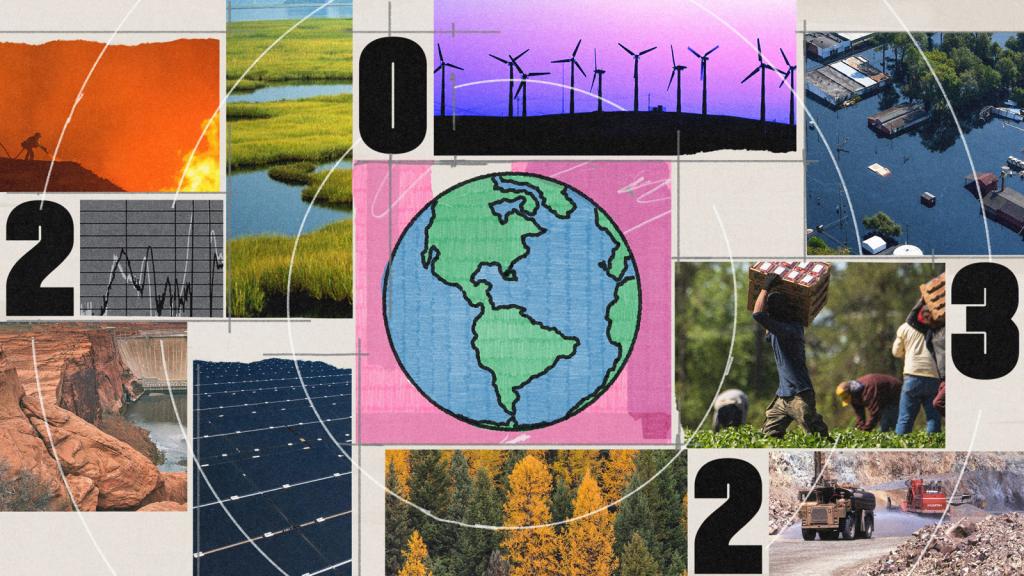This story is part of Fix’s What’s Next Issue, which looks ahead to the ideas and innovations that will shape the climate conversation in 2022, and asks what it means to have hope now. Check out the full issue here.
Following the 2020 protests sparked by George Floyd’s murder, environmental groups including Audubon, Sunrise Movement, and Defenders of Wildlife publicly embraced Black Lives Matter. Public Interest Network, which includes Environment America and U.S. PIRG, pledged financial support to anti-racist and gun control organizations like the Urban League of Portland and Urban Peace Institute. However, several of these same environmental groups have since come under fire by staff of color for workplace environments where they felt tokenized, marginalized, and underrepresented.
Despite promises to do better, most environmental outfits remain largely white.
Since 2017, Green 2.0, which tracks and promotes diversity among green organizations, has annually surveyed the 40 largest environmental NGOs and foundations on the racial and ethnic makeup of their leadership, boards, and staff. In 2020, we more than doubled our outreach to survey nearly 90 groups and, for the first time, we also looked at where foundations are allocating their money.
We found a marginal improvement in hiring diversity: The proportions of staff of color grew from 26.3 percent to 30 percent in 2020. During that same period, we saw a slight increase in the percentage of people of color on boards, from 25.2 percent to 28 percent. Just one-quarter of NGOs surveyed have a person of color as chief executive.
Given that the latest U.S. census confirms that 4 in 10 Americans are not white, green organizations are not reflecting the country’s rapidly changing demographics.
I’m reluctant to call this progress. Our nation’s environmental groups, leaders, and policies are not representative of the population. Communities of color are more likely to breathe polluted air and live near coal plants and toxic sites. Yet even as people of color disproportionately face the acute impacts of these environmental problems, they are regularly excluded from key decision-making processes.
The unfortunate reality is that not much has changed since I jumped into the environmental sector nearly a decade ago. Before leading Green 2.0, I worked on immigration issues for the New York City mayor’s office and on federal housing issues in Congress. Throughout this work, I sat in too many conference rooms to count, listening to presentations about what frontline communities need and wondering why no representatives of these communities were in the room to speak their own truth. Oftentimes, I’ve been the only person of color and the only immigrant in the room.
Our survey also revealed that green foundations, at least those that participated, are giving 40 percent more money to organizations with white leadership than to those led by people of color. Awards of multiyear funding, which offer recipients more flexibility, stability, and sustainability, are even worse. Groups led by people of color received less than one percent of that pool. I’ll be blunt: When large foundations create such scarcity among small groups led by people of color, they are left to compete against each other for the scraps that trickle down.
Most foundations don’t even collect key metrics regarding whom they’re funding. Without such transparency, there’s no way for the philanthropic sector to shift toward racial justice.
Many in the green movement are clamoring to meet the challenges of this moment. I talk to executive leaders on a regular basis. Sometimes they tell me about the task force they have created or the DEI training they’ve required for their employees. Others, though, have told me, “That’s not our issue. That’s not what we do.”
This is everybody’s issue; we need all perspectives when setting laws and policies. I can say from experience that there are direct costs for speaking up when you are the one person in the room with a different perspective — for one thing, you will likely not get invited back. The only way leaders of color will get a seat at the table where major decisions are made — and better yet, set the agenda — is if they are primed to be there early in their careers. That means organizations must continually improve hiring practices and organizational policies.
Yes, some groups are doing better on DEI efforts, funding and prioritizing these initiatives, incorporating equity into strategic plans, and using employee feedback to improve existing practices. But this doesn’t make up for staffing disparities or stagnant office cultures. There are qualified and passionate people of color who can do every job, not just jobs with diversity and equity in the title.
If our intention is to upend an unjust system, we need change at all levels, from major NGOs and foundations to startups led by people of color. At the top end, recruiters must cast a wider net for candidates of color, leaders must examine their office culture to ensure everyone is valued, included, and respected, and hiring managers should consider people of color for all positions, especially roles with decision-making power. We need every environmental NGO to take these actions for accelerated change to happen.
And, for the smaller organizations led by people of color who are just scraping by: I see you. I know that you and the communities you serve aren’t getting what you need. Despite these challenges, we must come together to put pressure on foundations. That means sharing information, picking up the phone and letting other groups know where the money is coming from.
My hope for the coming year is for fewer headlines calling out our movement for its diversity failings and, instead, more green organizations integrating people of color into all different types of staffing positions, whether it’s treasurer, vice president, president, or scientist. We are here for anyone unsure of the next steps or where to begin.
Andrés Jimenez is the executive director of Green 2.0, a watchdog organization for diversity in the environmental sector.
The views expressed here reflect those of the authors.
Fix is committed to publishing a diversity of voices, and we want to hear from you. Got a bold idea, fresh perspective, or insightful news analysis? Send a draft, along with a note about who you are, to opinions@grist.org.




